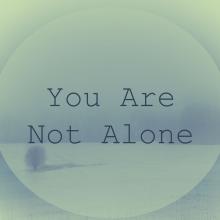infertility
When my husband and I started fertility treatment, we intentionally stopped going to church. Due to various traumatic religious experiences, we had been floating for over a year and we remained undecided on whether belonging to any religious organization would be part of our future. Then we went to a church service on Father’s Day weekend. Belting pop songs about the joy and goodness of God was already too much. But then they asked all fathers to stand and it broke us. Around this time, we alerted a small group of people that we were beginning fertility treatment and taking a break from church service.

Photo by insung yoon on Unsplash
As more states pass laws to legalize commercial gestational surrogacy, which involves paying the surrogate a fee for the pregnancy on top of reimbursing her for medical and living expenses, voices from across the Christian spectrum are speaking out both for and against the practice and exposing a theological rift not just about surrogacy, but about all reproductive technologies available today.
1. Drone Strikes Reveal Uncomfortable Truth: U.S. Is Often Unsure About Who Will Die
Following the president’s admission this week that two Western hostages were killed in a drone strike in Pakistan, protestations against the veiled drone program have re-escalated. “Every independent investigation of the strikes has found far more civilian casualties than administration officials admit. Gradually, it has become clear that when operators in Nevada fire missiles into remote tribal territories on the other side of the world, they often do not know who they are killing, but are making an imperfect best guess.
2. Infertility and the Role of the Church
This week is Infertility Awareness Week. Writer Rachel Marie Stone dives into some of the attitudes about infertility and reproductive technologies in the church.
3. Meet Your New Attorney General
After postponing a vote for more than five months to fight along party lines over abortion language in a human trafficking bill, the Senate voted Thursday to approve the nomination of Loretta Lynch, 55, making her the first black woman to head up the Justice Department.
4. Those Countries at the Top of the World Happiness Report Also Have Great Press Freedom Rankings
See what country falls where and read more about the correlation.
If you’re on social media and have a certain number of contacts of childbearing age, chances are good that there are times when it seems that every other post is announcing a pregnancy, the results of a gender-revealing ultrasound, or a birth.
Chances are also good that you don’t see many status updates about infertility, about the difficult “two-week wait” between ovulation and the time that a home test can announce an early pregnancy — or a woman’s monthly period can let her know that her wait isn’t over.
This week — April 19-25 — is National Infertility Awareness Week. For 2015, the theme is “You Are Not Alone.”
That’s an important message for people struggling with infertility.
“It’s a very private struggle,” one woman told me. “It’s a struggle not many people are privy to, so you put on a smile and act like all is well when really you’re in a constant state of grief.”
“It isn’t only about the second bedroom remaining empty or the ache of your empty arms when you see a friend cradling her newborn. Our culture — from our tax policies to our churches — revolve[s] around families with children. When people experience infertility, they grieve what’s missing from their personal lives and are also shut out from the social experience of parenthood,” says Ellen Painter Dollar, a writer who focuses on reproductive health and ethics.
Yet infertility affects more people than you might think: 1 in 8 — 7.4 million — U.S. women of childbearing age have trouble getting pregnant or sustaining a pregnancy to term. Infertility — defined clinically in male-female couples who don’t become pregnant after a year of unprotected sexual intercourse — is caused by many different factors and confluences of factors. Sometimes, perhaps as much as a third of the time, no identifiable cause can be found.
As a mental health professional and a mom, I have come to appreciate the incredible importance of family relationships on the development and maturation of children. I’ve also realized that the archetypal family relationships worshipped in our (Christian and secular) culture often have little to do with the real sweat and blood of family life.
My husband and I have a running joke that one day we will start an “ambiguous family relationships” greeting card company. Our imaginary company is designed for those experiencing family situations that aren’t exactly addressed on the cheerful card aisle. Mother’s Day is prime among those occasions that seems to call for our imaginary company’s services. While the consumerist culture portrays images of wonderful family relationships rewarding the hardworking mom with leisure and jewelry, Mother’s Day is not joy and leisure for all. It can be a time of irony and pain for those who have experienced relationship loss, infertility, miscarriage, separation, or death. Mother’s Day in many ways has become a cultural enforcement of the middle class ideal rather than recognition of the real pain and sacrifice of mothers worldwide.
Moms should be celebrated, and they deserve all the flowers, spa days, pampering, and gifts given to them. I love my mom and I can’t thank her enough for all she has done for me and my family — Mother’s Day doesn’t even begin to cover the gratitude I have for her.
But for many, Mother’s Day is the most painful day of the year. For women who have experienced miscarriages, have had children die, have had abortions, who want to have kids but are struggling or unable to, have had to give up their children or currently have broken relationships with their kids, the holiday serves as a stark reminder filled with personal sorrow.
Christian communities can be especially harsh because of their tendencies to show favoritism to the idea of motherhood — as if mothers are somehow more holy and righteous than non-mothers. In an effort to praise and empower marriage, healthy parenting, families, and the sanctity of life, Christian subculture often mistakenly and unintentionally alienates those around us — especially women.



